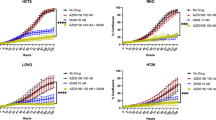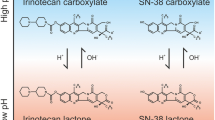Abstract
Anticancer drug development has recently shifted in part to development of more innovative anticancer agents. The increasing knowledge of the pathogenetic mechanisms involved in cancer cell growth has enabled the introduction of drug screening that is more mechanism-based. The realization that new targets should be preferentially evaluated as sites for anticancer drug treatment has led to the introduction of drugs such as the taxanes. Following this logic, several new drugs are being developed. Minor groove-binding agents such as carzelesin and oral platins lacking organ toxicity, such as JM216, have recently entered clinical studies. The activity of gemcitabine is a result of its being a cytidine analogue and being competitively incorporated by DNA; the drug has shown interesting activity in non-small-cell lung cancer and, although registration is imminent, issues regarding the optimal dose and administration schedule have yet to be resolved. Tomudex is a thymidylate synthase inhibitor with interesting activity in colorectal cancer. Activity in colorectal cancer is also of interest for irinotecan, the first clinically applied topoisomerase I inhibitor, an enzyme that is another example of a new target for anticancer drugs. Irinotecan has produced consistent response rates of 20 – 30% in six different studies in colorectal cancer. The other topoisomerase I inhibitor that is in the advanced stage of development is topotecan. This drug has shown activity in second-line chemotherapy for ovarian cancer and small-cell lung cancer. Another interesting feature of topotecan is the availability of an oral formulation with consistent bioavailability. Drugs interfering with cellular signal transduction, such as the protein kinase C inhibitors, are in the development spotlight. Finally, the use of old drugs in new ways, such as immunoconjugates of doxorubicin, holds promise for the near future.
Similar content being viewed by others
Author information
Authors and Affiliations
Rights and permissions
About this article
Cite this article
Verweij, J. New promising anticancer agents in development: what comes next?. Cancer Chemother Pharmacol 38 (Suppl 1), S3–S10 (1996). https://doi.org/10.1007/s002800051029
Issue Date:
DOI: https://doi.org/10.1007/s002800051029




